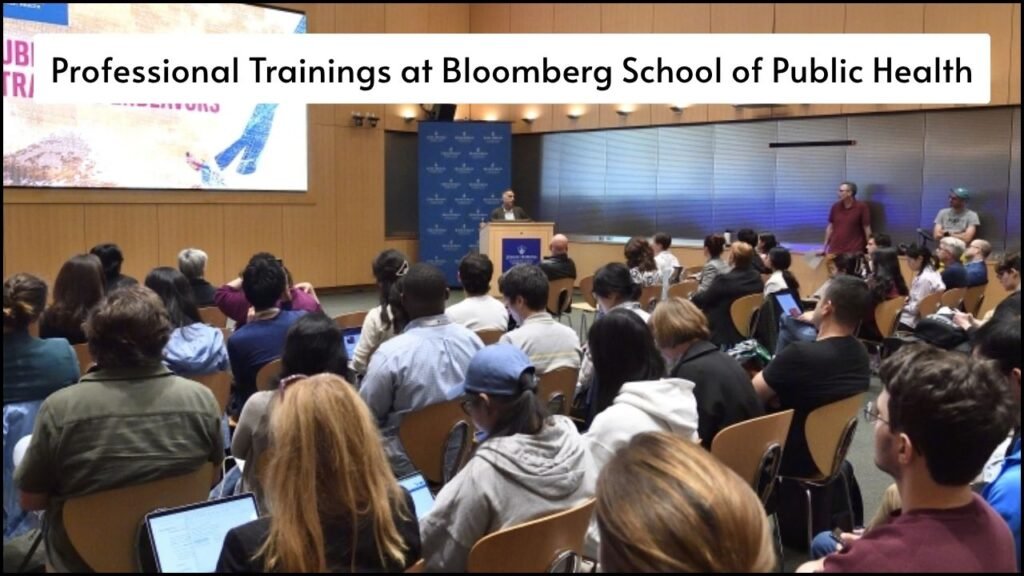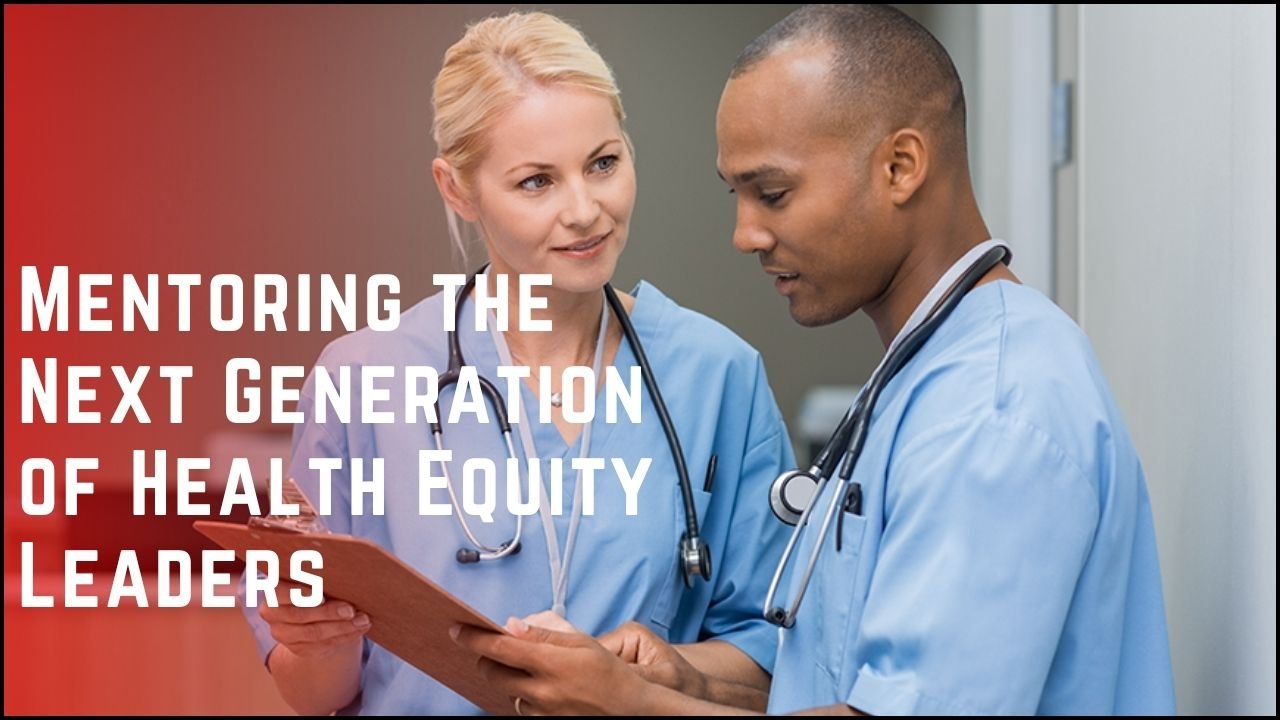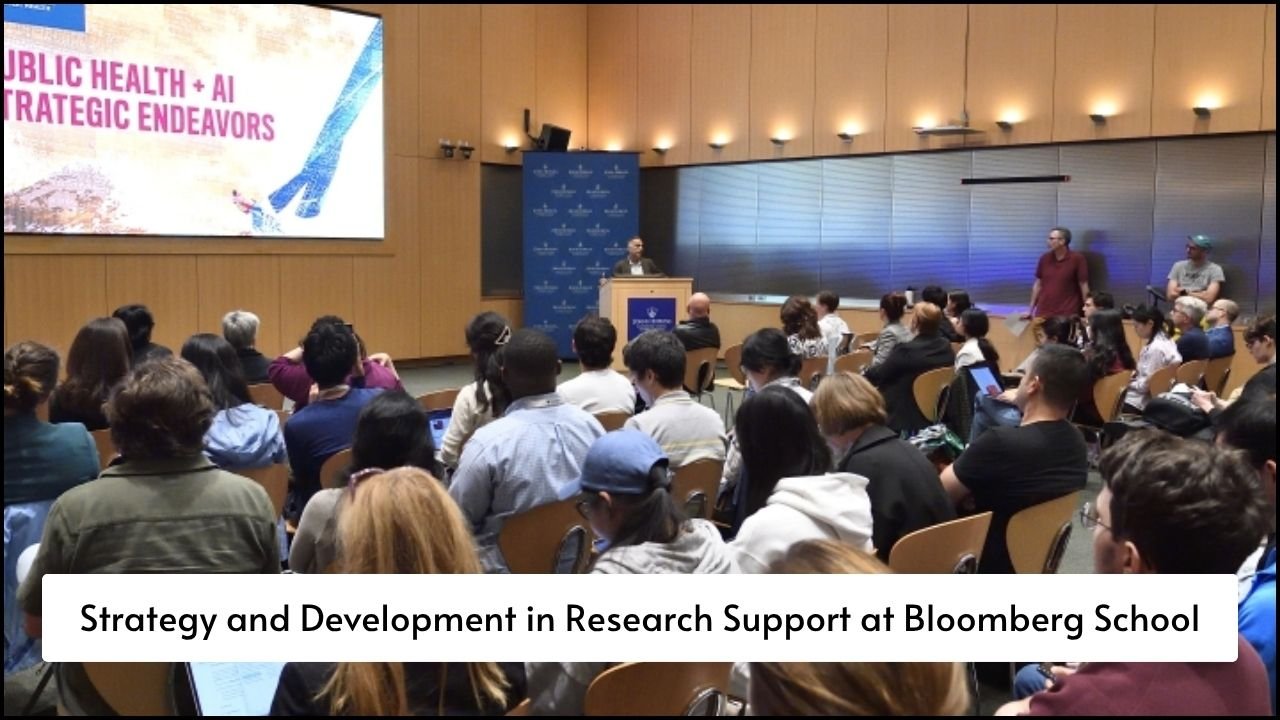
Professional trainings at the Bloomberg School of Public Health help individuals gain advanced knowledge and practical skills in the field of public health. These programs support professionals working in diverse areas and locations. Many of the trainings are available both in-person and online, allowing flexibility for working individuals. Some are offered through departments, while others are managed by centers and special institutes.
Table of Contents
Multiple Modes of Learning
Students and professionals can combine in-person classes with online courses. This flexible learning model supports the completion of degree programs and various public health certificates. Many programs are tailored to meet the needs of public health managers, health educators, researchers, and organizational teams.
Specialized Offerings by Departments and Centers
Different departments and centers at the Bloomberg School conduct professional training across varied topics. These programs aim to build capacity, improve infrastructure, and increase community resilience.
Key Professional Training Programs
| Training Program | Description |
|---|---|
| Online Professional Training in Epidemiology for Health Managers | Designed for public health professionals in Latin America and Spain. Conducted fully online in Spanish. Runs for 9 months and focuses on solving real public health issues. Does not offer academic credit. |
| Mid-Atlantic Regional Public Health Training Center | Focuses on workforce development in Delaware, Maryland, Pennsylvania, Virginia, Washington D.C., and West Virginia. Helps improve public health infrastructure in these regions. |
| Johns Hopkins Center for Health Security | Provides training in emergency preparedness, community resilience, and public health response. Includes scholarships, fellowships, coursework, and practicum options. |
| Education and Research Center for Occupational Safety and Health | Offers short-term courses on workplace safety. Helps professionals understand new regulations and compliance issues. |
| Institute for Global Tobacco Control | Manages leadership and certificate programs on tobacco control. Offers regional training sessions to promote global health. |
| Center for American Indian Health | Provides certificate programs and workshops focused on American Indian health. Supports professional development through education and research. |
| Center for Communication Programs | Conducts workshops on health communication. Focuses on developing global communication strategies to improve health outcomes. |
| Center for Alternatives to Animal Testing | Organizes international and national workshops promoting alternatives to animal testing. Supports ethical research practices. |
Program Features
- Targeted Audience: Most programs are meant for working professionals, policy makers, and managers.
- Language Options: Some programs, like the Epidemiology training, are offered in Spanish.
- Regional Focus: Programs are tailored to local and regional needs (e.g., Mid-Atlantic, Latin America).
- Mode of Delivery: Includes both in-person and online options. Some programs blend both modes.
- Certification: Many training programs offer certificates of completion but not academic credit.
Benefits of Participating
| Benefit | Explanation |
|---|---|
| Skill Enhancement | Programs help professionals upgrade their skills to address real-world challenges. |
| Career Growth | Completion of certified programs adds value to resumes and professional profiles. |
| Networking | Participants get opportunities to connect with experts and other professionals. |
| Flexibility | Online modules and part-time formats allow participants to learn while working. |
| Practical Exposure | Trainings often include case studies, simulations, and problem-solving tasks. |
Training Locations and Formats
| Institute Name | Training Location | Mode |
|---|---|---|
| Bloomberg School | Baltimore | In-person and online |
| Barcelona Institute (via short-term training) | Barcelona | In-person |
| Washington Training Programs | Washington, D.C. | In-person |
| Global Centers | Various International Locations | In-person and online |
Professional Training for Organizations
- Customized Training: The Office of Continuing and Executive Education designs custom training for organizations.
- Team Development: Organizations can improve the skills of their workforce through tailored programs.
- Flexible Delivery: Programs can be conducted at client locations or through digital platforms.
- Public and Private Sector Clients: Training is suitable for both government bodies and private companies.
Popular Workshop Themes
- Health communication and media
- Disease surveillance and emergency response
- Occupational health and safety
- Ethical alternatives to animal testing
- Indigenous health and wellness
- Tobacco control and regulation
Unique Aspects of Bloomberg Training
| Feature | Detail |
|---|---|
| Global Reach | Programs support professionals from North America, Latin America, Europe, and beyond. |
| Real-World Focus | Trainings are designed around current public health problems. |
| Faculty Expertise | Courses are led by experienced researchers and practitioners. |
| Collaborative Learning | Many workshops include group work and peer discussions. |
| Updated Curriculum | Content is refreshed regularly to match emerging global health needs. |
Wrapping Up
Professional trainings at the Bloomberg School offer powerful tools for building public health knowledge and practical skills. These programs go beyond traditional education by focusing on real-world challenges, region-specific needs, and flexible learning methods. By participating in these trainings, professionals gain a deeper understanding, boost their careers, and contribute more effectively to public health systems around the world.





